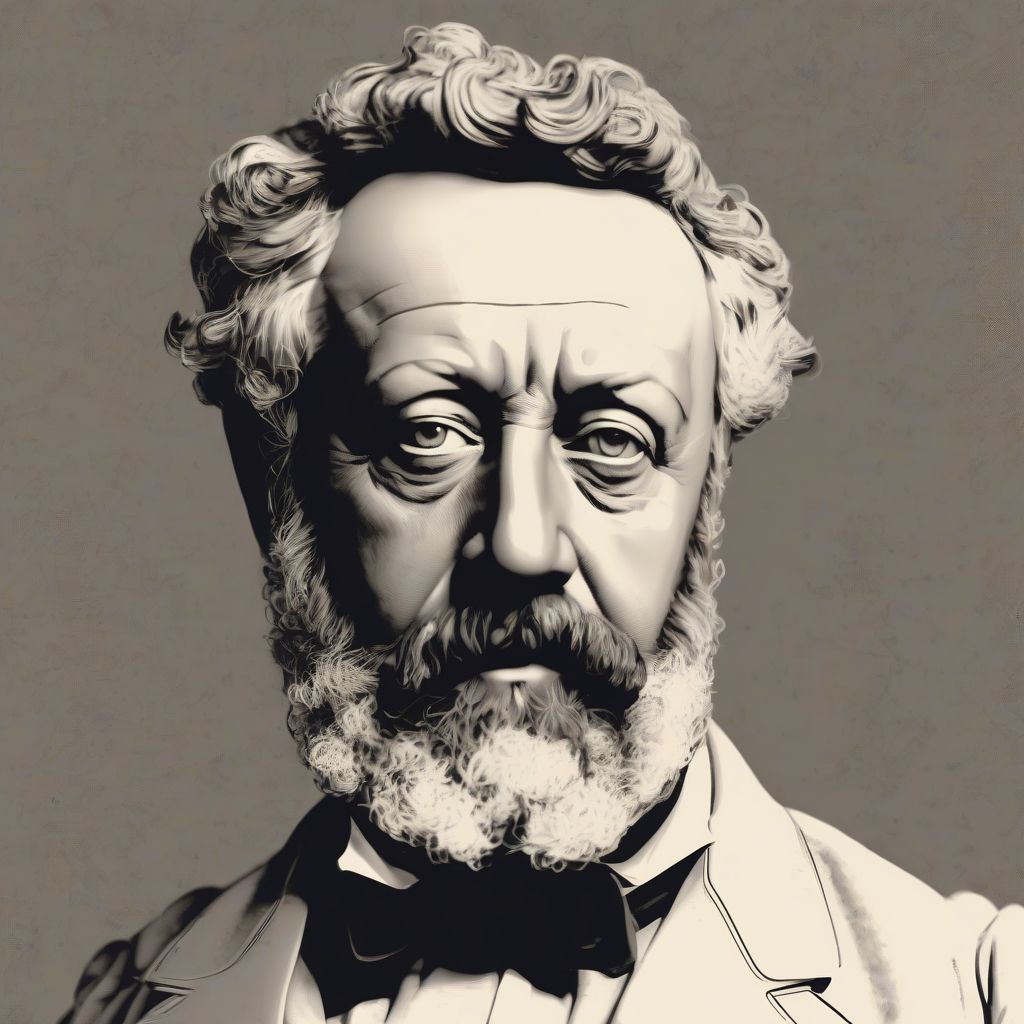Imagine a world where technology has advanced beyond our wildest dreams, where humanity has ventured beyond the stars, or where the very fabric of reality is questioned. This is the world science fiction invites us into, a world often born from the minds of visionary authors who dared to imagine “what if?”. But science fiction is more than just escapism. It’s a genre that holds a mirror to our own world, reflecting our hopes, fears, and the potential consequences of our actions. What’s truly remarkable is how deeply science fiction authors, past and present, have influenced the trajectory of modern literature.
The Architects of Imagination: Early Science Fiction Pioneers and Their Legacy
To understand the influence of science fiction authors on modern literature, we must first travel back to the genre’s roots. Early pioneers like Mary Shelley, H.G. Wells, and Jules Verne weren’t just crafting stories; they were shaping a new way of thinking about the world.
-
Mary Shelley’s Frankenstein (1818), often considered the first true science fiction novel, explored the ethical dilemmas of scientific advancement, a theme that resonates even more strongly today in our age of genetic engineering and artificial intelligence. Shelley’s masterpiece gave birth to the trope of the “mad scientist” and served as a cautionary tale about the potential consequences of unchecked ambition.
-
H.G. Wells, often dubbed the “father of science fiction,” captivated readers with tales like The Time Machine (1895) and The War of the Worlds (1898). Wells possessed an uncanny ability to extrapolate upon existing scientific theories, creating plausible (and often terrifying) visions of the future. His exploration of social commentary through science fiction, particularly in The Time Machine with its stark depiction of class inequality, continues to inspire authors today.
-
Jules Verne, known for his “Voyages Extraordinaires” series, including classics like Journey to the Center of the Earth (1864) and Twenty Thousand Leagues Under the Sea (1870), instilled in readers a sense of wonder and adventure. Verne’s meticulously researched stories popularized science fiction as a genre and inspired generations of scientists, engineers, and explorers.
 Jules Verne
Jules Verne
These early authors laid the foundation for modern science fiction, providing not just imaginative concepts but also the framework for exploring complex societal issues, technological advancements, and the human condition in the face of the unknown.
Beyond the Stars: How Science Fiction Shaped Modern Literary Themes
The impact of science fiction extends far beyond its own genre, bleeding into the very fabric of modern literature. Let’s explore some key areas where science fiction’s influence is undeniable:
1. Dystopian Literature: A Reflection of Societal Fears
The dystopian worlds imagined by authors like George Orwell in Nineteen Eighty-Four (1949) and Aldous Huxley in Brave New World (1932) drew heavily from science fiction’s exploration of totalitarian regimes and technological control. These novels serve as stark warnings about the dangers of unchecked power, mass surveillance, and the suppression of individuality. Modern dystopian fiction, from Suzanne Collins’s The Hunger Games to Veronica Roth’s Divergent series, continues to grapple with these themes, often targeting a young adult audience and sparking critical conversations about the world we are shaping.
2. Post-Apocalyptic Fiction: Exploring Humanity’s Resilience
The idea of a world ravaged by nuclear war, environmental disaster, or a global pandemic, a common theme in science fiction, has taken root in modern literature. Works like Cormac McCarthy’s The Road (2006) and Emily St. John Mandel’s Station Eleven (2014) showcase the raw resilience of humanity in the face of unimaginable loss and hardship. These stories force us to confront uncomfortable truths about our own mortality and the fragility of civilization.
3. Cyberpunk: The Intersection of Technology and Society
Emerging in the 1980s, cyberpunk, a subgenre of science fiction, explored the societal impact of rapidly advancing technology, particularly computers and the internet. Authors like William Gibson, with his groundbreaking novel Neuromancer (1984), introduced us to gritty, neon-lit urban landscapes where hackers and artificial intelligence blurred the lines between reality and the virtual world. The influence of cyberpunk is evident in contemporary fiction that examines themes of data privacy, cybercrime, and the increasingly blurred lines between humanity and technology.
From Page to Screen: Science Fiction’s Impact on Popular Culture
The influence of science fiction authors transcends the written word. Their visionary ideas have fueled countless adaptations in film, television, video games, and comic books, shaping the landscape of popular culture:
-
Film and Television: From iconic franchises like Star Wars, Star Trek, and Doctor Who to critically acclaimed films like Arrival (2016) and Blade Runner 2049 (2017), science fiction continues to captivate audiences worldwide. These adaptations not only entertain but also spark conversations about complex scientific and philosophical concepts.
-
Video Games: Science fiction has been a driving force in the video game industry, with immersive worlds and compelling narratives found in games like Mass Effect, Halo, and Cyberpunk 2077. These games allow players to actively engage with science fiction themes and explore futuristic or fantastical settings.
[amazon bestseller=”science fiction”]
The Future of Influence: Why Science Fiction Matters
Science fiction authors, with their boundless imaginations and thought-provoking narratives, have left an undeniable mark on literature and beyond. But their influence is far from over. As we grapple with the increasing complexities of our world, science fiction continues to offer:
-
A Space for Exploration: Science fiction provides a safe space to grapple with ethical dilemmas, social anxieties, and the potential consequences of our actions without being bound by the constraints of reality.
-
Inspiration for Innovation: Countless scientists, engineers, and inventors have cited science fiction as a source of inspiration, pushing the boundaries of what’s possible and turning fictional concepts into reality.
-
A Mirror to Ourselves: Science fiction encourages us to examine ourselves, our values, and our place in the universe. It challenges us to think critically about the world we are creating and the legacy we will leave behind.
The enduring influence of science fiction authors on modern literature lies in their ability to ask the big questions, to challenge our assumptions, and to inspire us to imagine a future full of both wonder and cautionary tales. Their stories remind us that the power of imagination knows no bounds.
